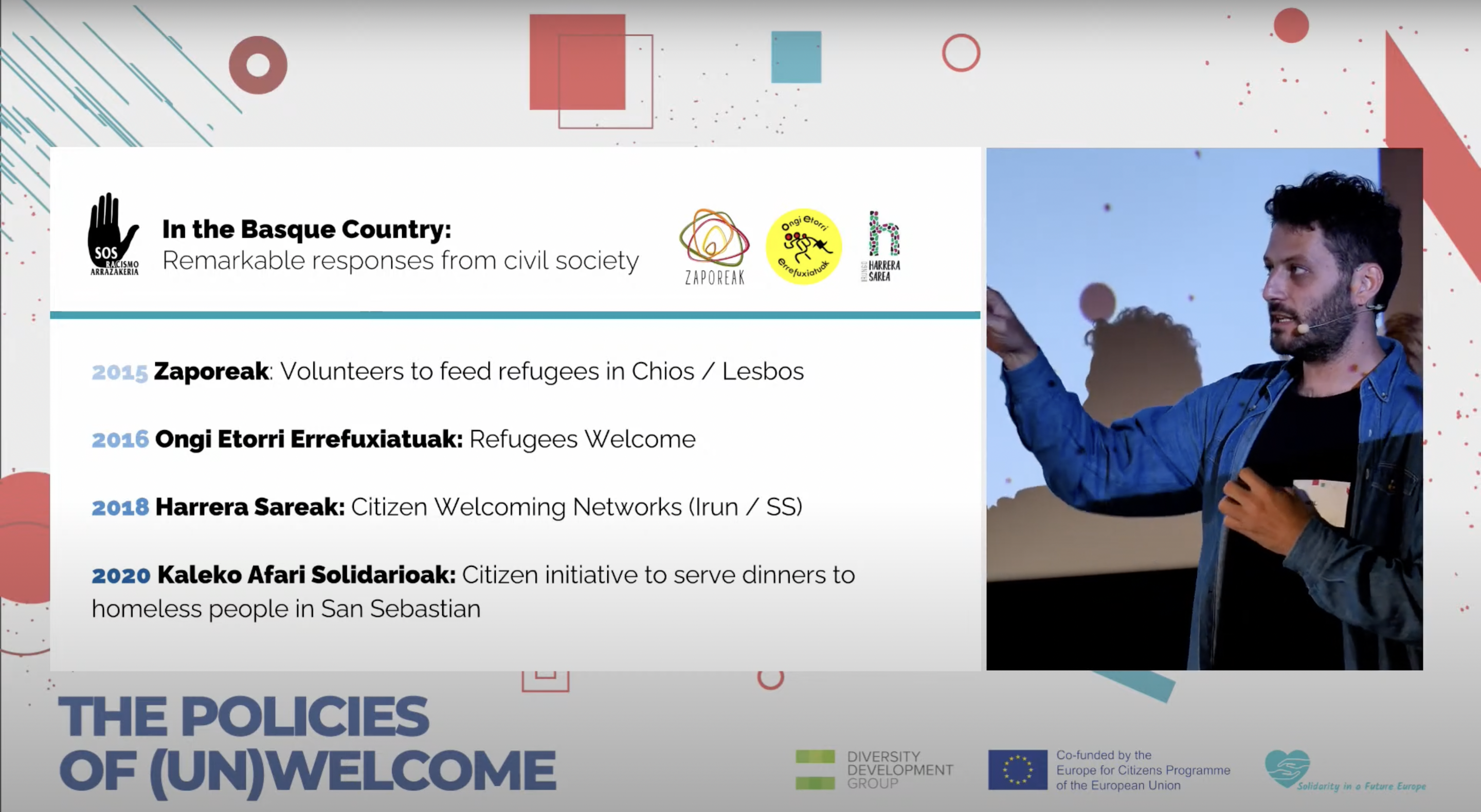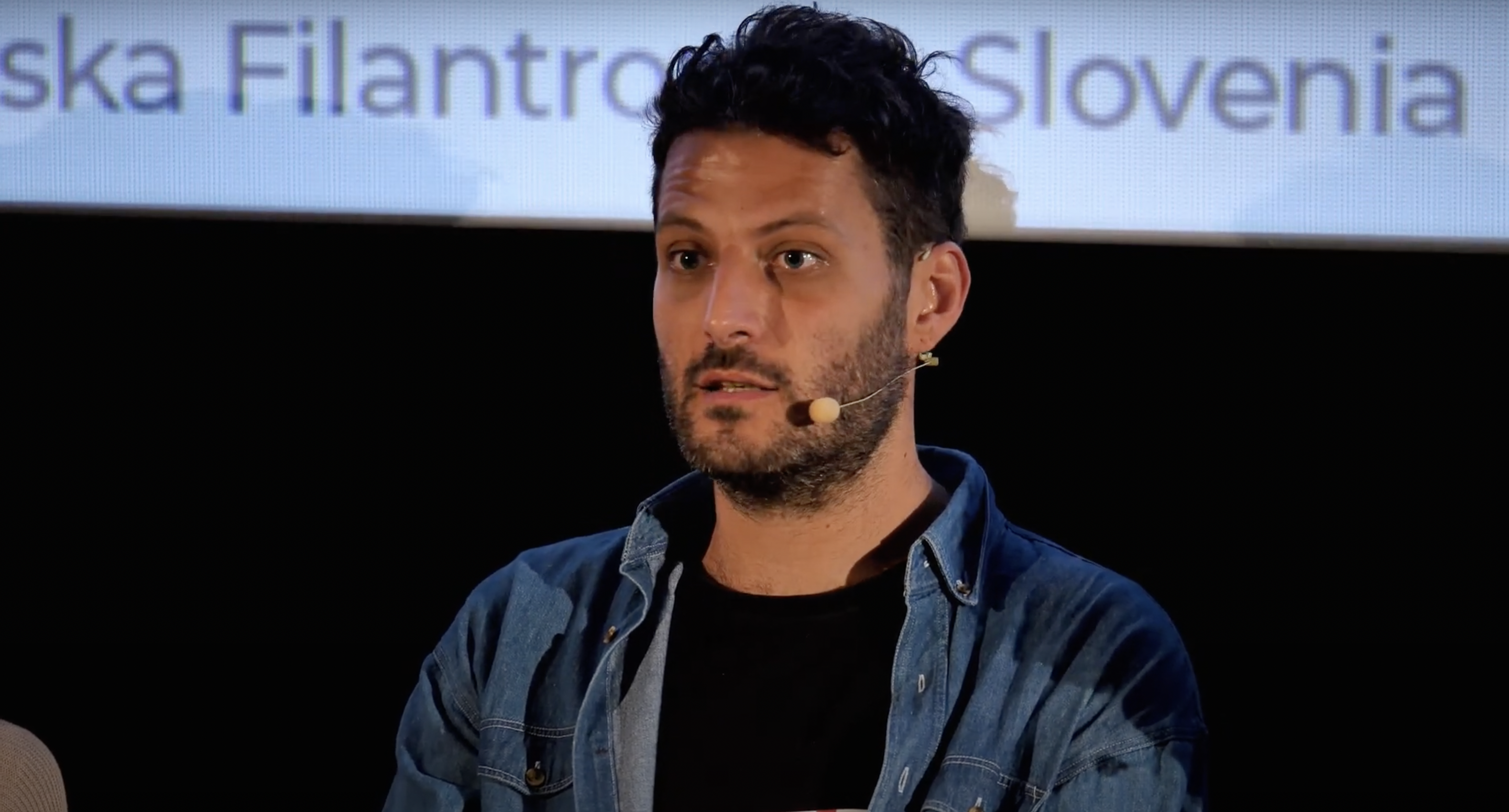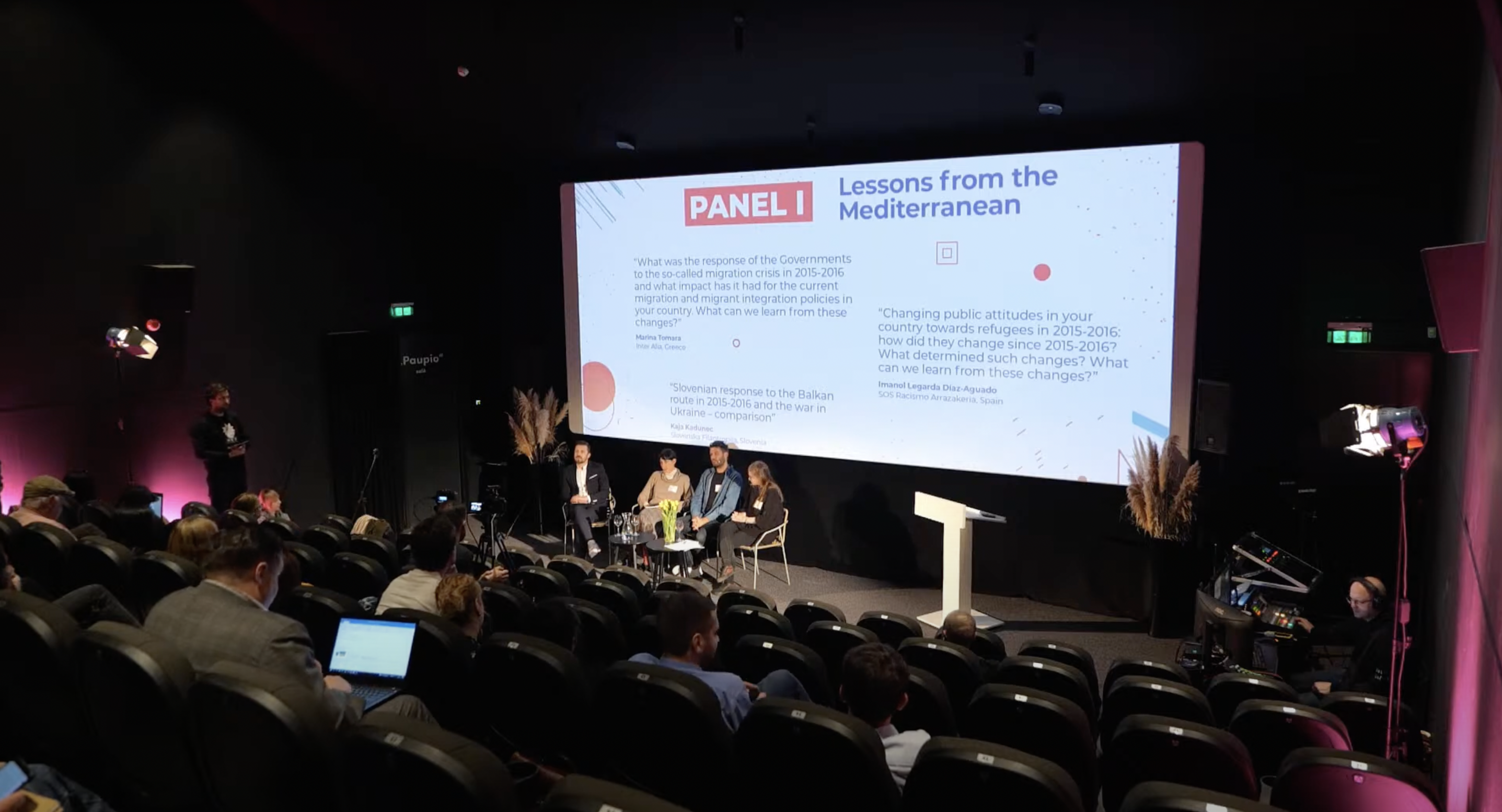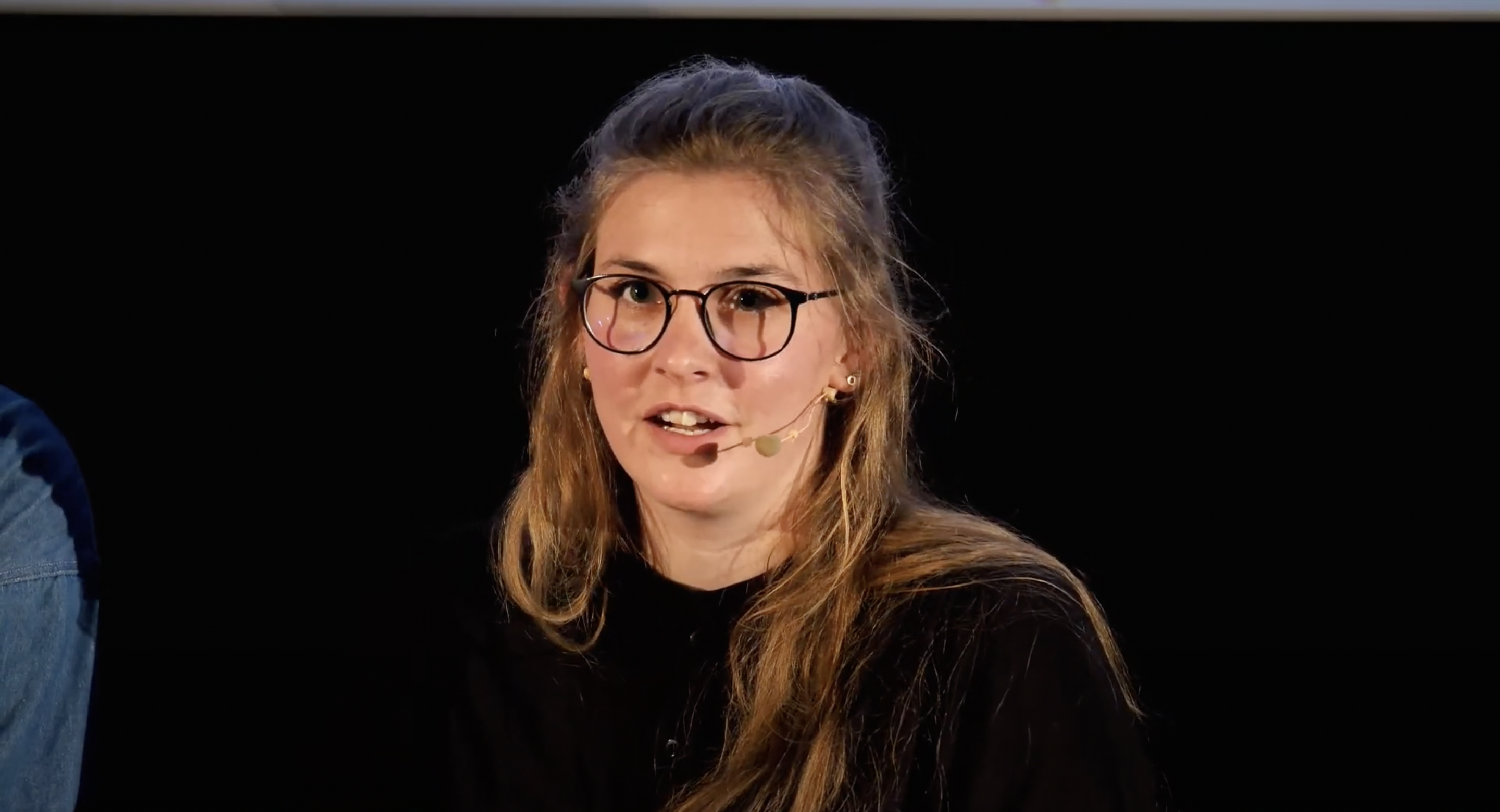
La semana pasada Nora Ugarteburu e Imanol Legarda, compañeras de SOS Racismo Gipuzkoa, participaron en las jornadas de The Policies of (un)Welcome en Vilnius, Lituania, organizadas por Diversity Development Group. Estas conferencias se centraron en la comparativa de las respuestas a tres eventos: la crisis del Mediterráneo de los año 2015-2016, la llegada de inmigración irregular a Lituania desde Bielorrusia y la recepción de personas Ucranianas que huyen de la guerra, donde, además de SOS, participaron organizaciones de Austria, República Checa, Lituania, Eslovenia y Grecia. Las jornadas sirvieron de cierre para el proyecto europeo Solidarity in a Future Europe, dentro del cual se enmarcaron también las conferencias celebradas en San Telmo (Donostia) centradas en la protección de menores.
Opinión pública hacia personas refugiadas y migrantes desde 2015
Desde SOS Racismo Gipuzkoa presentamos un breve análisis del cambio en la opinión pública y de las actitudes hacia las personas refugiadas y migrantes, ya que tras 2015 se observó un aumento en la movilización de la ciudadanía. En nuestro caso, quisimos destacar iniciativas ciudadanas como Zaporeak, Ongi Etorri Errefuxiatuak, Hiritarron Harrera Sareak (Donostia / Irun) o Kaleko Afari Solidarioak, y tratar de buscar claves que ayuden en la movilización ciudadana. Puedes ver ésta y el resto de conferencias (en inglés) utilizando los botones que encontraréis más abajo.



Keynote speaker
Do refugee integration policies improve in EU countries?
Alexander Wolffhardt, Migration Policy Group
The European benchmark for refugee integration. Lessons from the National Integration Evaluation Mechanism (NIEM)
PANEL I:
Lessons from the Mediterranean
From the refugee reception crisis to integration
Marina Tomara, InterAllia Network Member (Greece)
Good practices at local level in Greece and challenges ahead
Public attitudes towards refugees and migrants in the Basque Country and Spain
Imanol Legarda Díaz-Aguado, SOS Arrazakeria Gipuzkoa
The so-called ‘explotion of solidarity’ in EU in 2015, in contrast with states’ inability to handle the crisis
Slovenian response to the Balkan routes in 2015/16
Kaja Kadunec, Slovenska Filantropija (Slovenia)
Comparation to the current situation with the ukranian refugees
Q&A Roundtable I
Marina Tomara, InterAllia Network Member (Greece)
Imanol Legarda Díaz-Aguado, SOS Arrazakeria Gipuzkoa
Kaja Kadunec, Slovenska Filantropija (Slovenia)
PANEL II:
Evolving knowledge on the Eastern and Central frontier
The response of public and media regarding irregular migration from Belarus
Rita Ster, Centrum Pomocy Prawnej Im.Haliny Nieć (Poland)
Comparation to the situation on the Polish-Ukranian border
Response of the gov. of Lithuania to the irregular migration from Belarus
Laurynas Bieska, PhD, MRU (Lithuania)
Impact on the current migration and migrant integration policies in Lithuania
Responses of Czech Rep. to migration from Ukraine
Soňa Spěváková, Organizace pro pomoc uprchlíkům (Czech Republic)
Government response, what is lacking and the field work of OPU
Q&A Roundtable II
Soňa Spěváková, Organizace pro pomoc uprchlíkům (Czech Republic)
Marina Tomara, InterAllia Network Member (Greece)
Imanol Legarda Díaz-Aguado, SOS Arrazakeria Gipuzkoa
Kaja Kadunec, Slovenska Filantropija (Slovenia)
